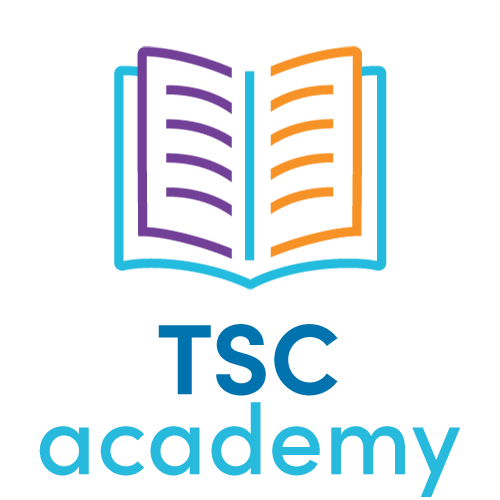Receiving a diagnosis of a rare genetic disease while pregnant can be overwhelming. Depending on the findings, it is important to have ongoing conversations with your healthcare team on what to expect. Explore the following sections to learn more.
Prenatal screening
Prenatal genetic testing is a common method many women seek to learn whether their baby has certain genetic disorders. There are two types of prenatal tests, prenatal screening tests and prenatal diagnostic tests. Screening tests focus on your risk of having a baby with certain disorders, such as, carrier screening and prenatal genetic screenings. Carrier tests can be completed before or during pregnancy. Prenatal genetic screenings (such as an ultrasound or by testing the pregnant woman’s blood) focus on finding unexpected changes to major organs and blood components. Women with a known genetic disorder, such as TSC, can benefit from prenatal diagnostic tests. This type of testing focuses on if the fetus has inherited a certain disorder. Testing is done on fetal cells, placenta, amniocentesis, or chorionic villus sampling.
It is important to understand that a positive screening test does not confirm a disorder – rather, it means your baby has a higher risk of a disorder. Follow up diagnostic testing are required to confirm a screening result. We strongly recommend discussing options with your healthcare team, which at this stage might include a genetic counselor, to discuss the meaning of your results and options moving forward.
Here is more information regarding reproductive decision making and TSC.
Tips from parents
Along your journey, it is helpful to know you are not alone. Despite this being a very difficult time, the TSC community has compiled helpful resources to guide you during this phase. These tips and guides may not answer all your questions and, our TSC Support Navigators are available to help you at any time.
Making appointments with multiple providers can be exhausting and it can be tough to predict how to prepare for new consultations to ensure that the appointment is successful. Learn more on How to Have a Successful Appointment and Prescription Management.
As this is the first phase of your journey, there are many laboratory and diagnostic tests that will be mentioned along the way. Having an understanding will help you feel more empowered and confident as you have open conversations with your healthcare team. Knowing what to expect and when to proactively assess a situation is critical with this diagnosis. Building a solid foundation now will make a huge difference during your journey. Learn more here on Understanding Medication and Testing.
When you are ready, learning about common TSC manifestations during childhood is a helpful guide to proactively give insight on what to look out for during the next phases of the journey. Learn more at Signs and Symptoms of TSC
Discussing a new diagnosis with your family is also a process that can be challenging during this phase. Each situation is unique and disclosing personal information with friends and family should occur only when you are ready to have that discussion. This part can be difficult, so here is a letter you can share with friends and family to help explain the diagnosis when you might not have yet found the words to say.
This journey can feel lonely at times but connecting with another family that has navigated these steps before you can make all the difference. To gain my insight on caregiver selfcare please go to caregiver mental health under the resource section. Click here to learn ways on how you can connect with the TSC Community or reach out to our TSC Support Navigators for assistance.
In utero diagnosis
The most common manifestation in utero are irregular growths in heart tissue, known as cardiac rhabdomyoma. These are benign (non-cancerous) and usually get smaller on their own as the child ages. Rhabdomyomas do not typically require intervention beyond monitoring – they cause issues very rarely. Proper follow up with your healthcare team will be essential. During the pregnancy, you most likely will be followed by your OB-GYN and other specialists such as a Maternal-Fetal Medicine (MFM) provider or a genetic counselor.
It is also important that you connect with a local pediatrician prior to delivery to discuss the disease and ensure that the pediatrician is going to be the best fit for you and your baby. It is common for medical providers to be unfamiliar with TSC; however, your pediatrician will be your child’s expert and, along with you, be your biggest advocate as you start your TSC journey. Finding a good fit is essential.
Another important step is to connect with the nearest TSC clinic during pregnancy to prepare and plan for any baseline testing shortly after birth. Many clinics offer telehealth options, which might include a parent counseling session. You can locate a TSC clinic here. If you do not have access to a local TSC clinic, you can also make an appointment with a pediatric neurologist experienced in epilepsy.
Many of our TSC experts can offer provider-to-provider recommendations and our TSC Support Navigators can assist with this process.
Key factors to evaluate for a new diagnosis are outlined in 2021 Updated Diagnostic Criteria These recommendations are published under the title “Updated International Tuberous Sclerosis Complex Diagnostic Criteria and Surveillance and Management Recommendations” in the peer-reviewed medical journal Pediatric Neurology.
TSC is unique, and every journey starts differently. Here is a New Diagnosis Flowchart to glance at how your journey might start. To learn more about the type of Specialists You May Encounter to gain more insight in navigating your journey.







